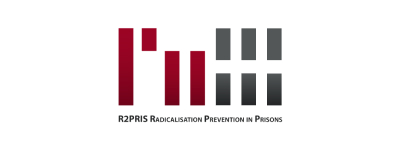In a recent workshop organised by IPS_Innovative Prison Systems in Portugal, participants delved into establishing channels and structures for communication towards protecting places of worship amidst the growing threat of extremism targeting religious sites.
Drawing insights from best practices observed across several countries, the IPS_Innovative Prison Systems workshop reunited law enforcement agents (LEAs), local municipalities (MUNs) and religious stakeholders (RELs) to shed light on notable initiatives and potential areas for improvement in safeguarding places of worship. Portugal’s reputation as a ‘best case study’ was highlighted for the positive integration of different religions and communities, fostering harmony and dialogue among various religious and cultural groups. Regarding the threat landscape, concerns were raised about the rise of far-right representation in the Portuguese Parliament and the normalisation of hate speech, particularly towards immigrant communities.
Portugal’s current risk and threat landscape
In the context of the current risk and threat landscape in Portugal, it was highlighted that it is important to separate the concepts of ‘risk’ and ‘vulnerability’. While the risk level in Portugal remains relatively low, it is crucial to note that a lowered threat level for a potential attack, including on places of worship, does not equate to a similarly reduced vulnerability, since a variety of factors possibly enhance it, such as election periods, geopolitical events and contexts, and the integration of immigrant communities.
As for current risks and emerging threats to religious communities in Portugal, several key aspects were highlighted. These include the increase in unregulated immigration, the proliferation of non-official places of worship, the dissemination of online disinformation potentially leading to radicalisation and extremist actions, and the presence of intolerant and hate speech among some police officers, alongside inadequate responses from politicians.
Increase in unregulated immigration
The significant increase in immigration, particularly in an unregulated and uncontrolled manner was highlighted as a growing concern regarding the challenges for institutions to monitor and provide support. In addition to this, the need for increased awareness of regulatory norms to foster harmony and coexistence among diverse religious and national groups was another observation pointed out. Participants noted that immigrants may come from countries with different regulatory environments and struggle to navigate Portugal’s abstract laws, compounded by language barriers. While law enforcement acknowledges these challenges, they highlight a lack of effort from some individuals to assimilate and respect local regulations. The legal complexity issue, pervasive across Europe, particularly resonates in Portugal, with comparisons drawn to other countries’ efforts to address similar issues.
Another significant issue identified was the proliferation of non-official, ad hoc places of worship, often located in shops, apartments, or convenience stores. These establishments, lacking a designated leader or point of contact, result in challenges when implementing security measures. Another pressing issue associated with these group formations is the risk of fostering subcultures, potentially exacerbating community separation and revealing integration failures.
Online radicalisation
Isolated individuals lacking a sense of belonging are more susceptible to online radicalisation. Recognising this vulnerability, religious leaders extend their reach beyond places of worship, underscoring the importance of community outreach in fostering resilience against radicalisation.
The workshop attendees also highlighted that online disinformation fuels extremist agendas and hateful narratives, emphasising the challenges in controlling its impact. In line with this, the clustering of diverse religions in concentrated areas can potentially exacerbate tensions and lead to extremist actions.
Intolerance in law enforcement and political discourse
A concerning trend highlighted was the presence of intolerant and hate speech among some police officers, echoing far-right rhetoric and targeting specific communities. Limited training in human rights and diversity sensitivity was cited as a contributing factor, along with negative interactions and perceptions of law enforcement with these communities.
Criticism was also directed at politicians for their lack of awareness and inadequate responses, with political rhetoric noted as exacerbating extremist discourses. Additionally, the spread of such sentiments beyond traditional hotspots like Lisbon was noted, signalling a broader societal challenge.
Strengthening security measures in places of worship
Against the increased concerns surrounding security in places of worship, participants delved into existing and necessary security measures across Portugal, emphasising the importance of collaboration between LEAs, municipalities, and religious communities. Existing security measures were described as predominantly hard measures, focusing on physical protection and vigilance, and concerns were raised regarding the lack of security measures for non-identified and unofficial places of worship, highlighting an ongoing issue.
Participants advocated for a shift in focus from solely police involvement to a community-based approach, with municipalities and communities taking on more significant roles in ensuring security. Several suggestions were shared, including:
- Adjusting recruitment policies for LEAs to ensure professionals are stationed in their communities, allowing for a better understanding of local dynamics and enhanced community trust.
- Comprehensive training in human rights and cultural sensitivity within police forces.
- Expanding Municipal Security Councils to include religious communities and civil society actors.
- Multisectoral awareness campaigns to highlight the importance of places of worship, promote the inclusion of the topic in the political agenda, and plan action groups.
Overall, the discussion underscored the importance of a multi-faceted approach to security in places of worship, involving collaboration between various stakeholders – local authorities, municipalities, religious leaders, civil society, and law enforcement – to ensure the safety and well-being of religious communities across Portugal. IPS_Innovative Prison Systems’ workshop offered valuable insights into promising practices that hold the potential for replication in other countries, aiming for a future of enhanced security and inclusivity for all.
Learn more about this project

PARTES
Participatory Approaches to Protecting Places of Worship
The PARTES project is coordinated by the Austrian Institute for International Affairs (Austria) and partnered by the SCENOR Association (Austria), IPS_Innovative Prison Systems (Portugal), the Euro-Arab Foundation for Higher Studies (Spain), the Associazione Carcere e Territorio (Italy), the Association Les Militant des Savoirs (France), the European Foundation for South Asian Studies (The Netherlands), BLUE LINE (Portugal), the Association of Bukharan Jews (Austria), KEMEA – Center for Security Studies, Ministry of Citizen Protection (Greece), the Violence Prevention Network (Germany), the Foundation “Latvian Evangelical Lutheran Church Diaconia Center” (Latvia), European Strategies Consulting (Romania), the Hellenic Police (Greece), and the Murcia Municipal Police (Spain).
For more information on the project, or to learn how to get involved, please visit its website.
Related projects

FUTURE-ART
Sentinels of the Future: Together to Eradicate Human Trafficking

COOPERHATE
Delivering a comprehensive approach to preventing, reporting, investigating and prosecuting hate crime and hate speech-related incidents in Portugal

SHIELDed
Safeguarding symbolic places of personal and religious development and freedom in Europe through a multi-stakeholder approach.

VicTory
Restorative and victim-centred approach to mitigate hate and (violent) extremism

DIGIDEM
Fostering Digital Democracy and Citizenship in Higher Education

KOBAN
Identifying future capabilities for Community Policing

SafeBorders
Strengthening Judicial expertise and Frontline support to combat Child Trafficking

IN2PREV
Law enforcement and community cooperation and training approach to prevent radicalisation by ensuring refugees’ successful inclusion

REFUGIN
Communitarian approach for a holistic young refugee long-term integration

R2PRIS
Radicalisation Prevention in Prisons
Related news

IN2PREV Final Conference highlights cross-sector collaboration for refugee inclusion and radicalisation prevention
Read More »
Standing united against hate: A national effort to prevent and tackle hate crime and hate speech in Portugal
Read More »
New IPS-led initiative unites efforts to protect religious communities, schools, and places of worship
Read More »
IPS contributes to shaping EU’s future agenda on radicalisation prevention at Brussels Town Hall meeting
Read More »
Advancing rehabilitation and countering contemporary extremist threats: IPS at the EU Knowledge Hub on Prevention of Radicalisation Thematic Panels
Read More »
Strengthening integration across Europe: Collaborative efforts to support refugee inclusion and radicalisation prevention
Read More »



